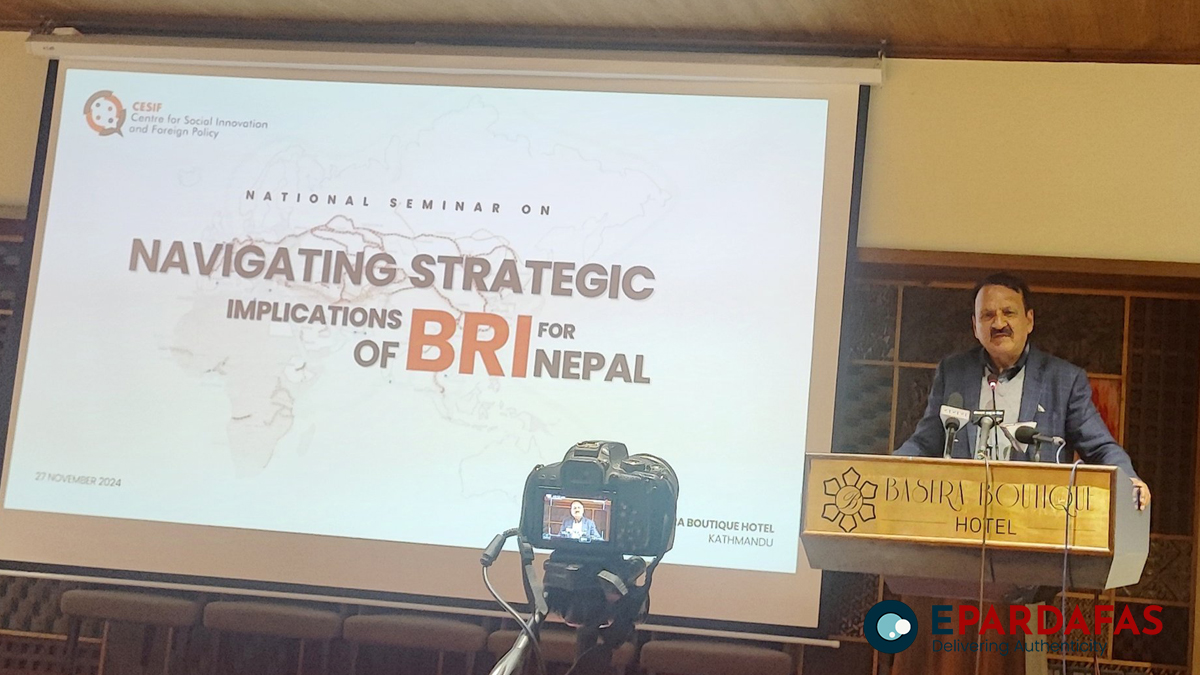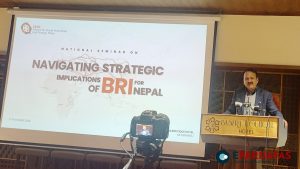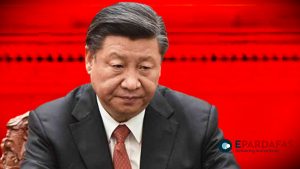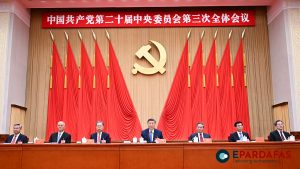
Navigating Nepal’s Strategic Challenges in the BRI Era
Nepal’s geopolitical position between India and China, alongside growing U.S. interest in South Asia, demands careful navigation as Kathmandu weighs its involvement in China’s Belt and Road Initiative (BRI). Political leaders, experts, and observers attending a Kathmandu seminar, organized by Social Innovation and Foreign Policy (CESIF), highlighted the strategic complexities and risks of engaging with BRI projects, particularly regarding financial sustainability and national priorities.
Balancing National Interests Amid Rivalry
Ajaya Bhadra Khanal, CESIF’s Research Director, framed the BRI as more than an infrastructure initiative, describing it as a “comprehensive strategic framework” aimed at reshaping the global order. He urged Nepal to assess the social, political, and economic consequences of BRI projects carefully.
Former Foreign Minister Dr. Prakash Sharan Mahat emphasized the need for a consistent and unified framework to guide Nepal’s foreign engagements, advocating a cautious approach to BRI Implementation Plans. He warned against hasty decisions, stressing that any agreement should align with Nepal’s national priorities.
CPN-UML leader Pradeep Gyawali echoed this sentiment, noting that Nepal’s discussions on BRI often reduce to a “loan versus grant narrative.” Gyawali called for deeper deliberation, particularly in light of geopolitical sensitivities and the financial implications of large-scale infrastructure projects.
Debt Sustainability and Transparency Concerns
Several speakers, including Raj Kishore Yadav, Chairperson of the International Relations and Tourism Committee, raised alarms over Nepal’s debt sustainability and the lack of transparency in BRI negotiations. Yadav cited the Pokhara International Airport, a BRI-funded project, as an example of how opaque decision-making can lead to long-term financial vulnerabilities.
Former Foreign Secretary Madhuraman Acharya criticized the negotiation process for the BRI Implementation Plan, calling it a “classic case of how not to negotiate.” He underscored the need for transparency and parliamentary oversight, warning against top-down decision-making that bypasses democratic platforms.
Strategic Trade and National Priorities
Dr. Govinda Raj Pokharel, former Vice Chairperson of the National Planning Commission, highlighted Nepal’s failure to prioritize its trade routes with China—a critical national interest. He argued that effective negotiation with China requires clarity on Nepal’s priorities, which has often been absent in past dealings.
Key Takeaways for Nepal’s Foreign Policy
Transparent Decision-Making: Nepal must ensure BRI agreements undergo parliamentary scrutiny and are informed by public debate to avoid geopolitical and financial risks.
Focus on Debt Sustainability: The government should prioritize grants or concessional financing, steering clear of high-interest loans for large-scale projects.
Strategic Prioritization: Clear identification of national priorities, such as trade routes with China, is crucial to bolster Nepal’s bargaining power.
Avoiding Hastiness: Leaders must resist external pressures to sign agreements quickly, ensuring that long-term interests are safeguarded.
A Balancing Act in a Complex Landscape
As Nepal navigates the intersection of competing interests from China, India, and the U.S., its approach to BRI must be deliberate and balanced. Transparent, well-informed policymaking is essential to mitigate risks, uphold national sovereignty, and foster sustainable development. By emphasizing national priorities and strategic foresight, Nepal can chart a course that maximizes benefits while minimizing vulnerabilities in the evolving regional and global order.
- Government Committed to Boosting Economy Through Private Sector Cooperation: Minister Bhandari
- National Information Commission Submits Annual Report to PM Oli
- Varun Beverages Nepal Recognized for Highest Contribution to Social Security Fund
- Health Minister Stresses Efficient Resource Utilization at National Review Meeting













Comments